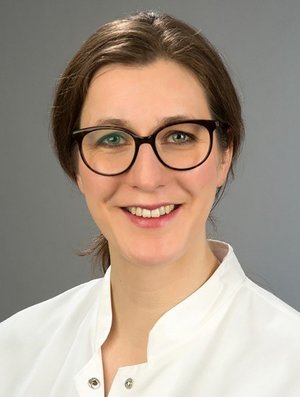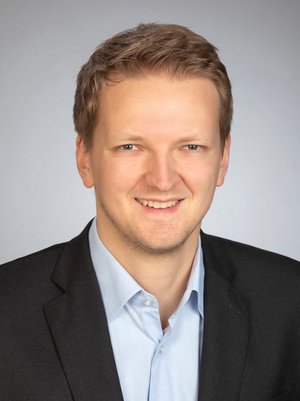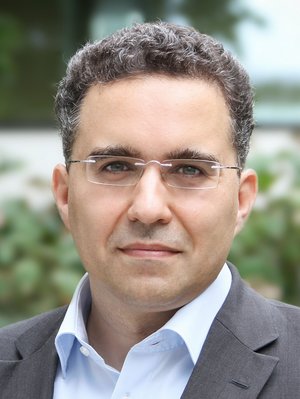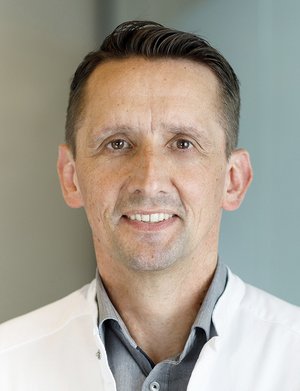Platforms
Translational Clinical Trial Unit
Chair: Prof. Dr. med. Dr. rer. nat. Sonja Loges
The Translational Clinical Trial Unit is the heart of the DKFZ Hector Cancer Institute at the University Medicine Mannheim. The Translational Clinical Trial Unit specifically takes up findings from basic and preclinical research and translates them into clinical studies (translation, from the laboratory to the bedside). At the same time, the outpatient clinic enables pseudonymized clinical data and biomaterials to be systematically made available for preclinical and basic research in the sense of reverse translation (from the bedside back to the laboratory).

Prof. Dr. med. Dr. rer. nat. Sonja Loges
Data platform
Chair, Head of IT: Prof. Dr rer. nat. Martin Lablans
Medical head: Dr med. Melanie Janning
The data platform of the DKFZ Hector Cancer Institute, formerly Study Database, is intended to link extensive research and routine data and serve as a basis for new insights into disease mechanisms and biomarkers. It uses structures from all three participating institutions and develops them further. It serves as a gateway to national initiatives, especially in (personalized) oncology. The platform is a data hub between the University Medicine Mannheim and the DKFZ and serves as a basis for data-driven research by current and future researchers of the institute.

Prof. Dr. rer. nat. Martin Lablans

Dr. med. Melanie Janning
Organoid platform
Coordinator: PD Dr med. Johannes Betge
Co-Coordinator: Prof. Dr rer. nat. Michael Boutros
Co-Coordinator: Prof. Dr med. Matthias P.A. Ebert
The Organoid Platform collects and characterizes organoids from patients with gastrointestinal tumors in a biobank, establishes new screening methods and provides workflows for molecular characterization and standardized drug trials with organoids. So far, organoids from more than 100 patients, mainly from colorectal carcinomas and carcinomas and carcinomas of the upper gastrointestinal tract have been established and most of them have been characterized on a molecular level. In addition, co-cultures of organoids and immune cells have been established and characterized. The organoid platform thus also forms an important structural basis for translational studies.

PD Dr. med. Johannes Betge

Prof. Dr. rer. nat. Michael Boutros
